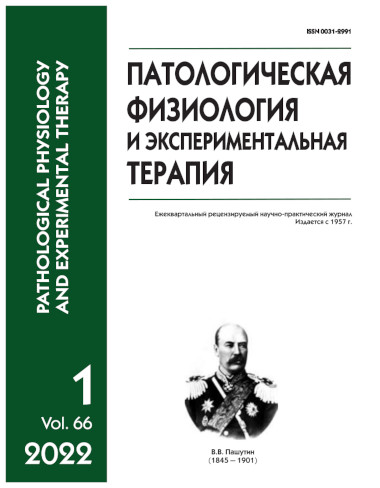The pathogenic role of IL6 gene polymorphisms in type 1 diabetes mellitus
Abstract
Background. Type 1 diabetes mellitus (T1DM), previously called juvenile or insulin-dependent diabetes, is characterized by lack of insulin production due to autoimmune destruction of pancreatic cells. This destruction may be caused by environmental factors. These factors contribute to inflammation in the presence of genetic predisposition due functional single nucleotide polymorphisms (SNPs) in the cytokine genes. It is supposed that during prolonged chronic inflammation, irreversible destruction of all pancreatic b-cells occurs. In the presence of functional, polymorphic markers in inflammatory genes, such as the interleukin 6 (IL6) gene, the manifestation and progression of T1DM is possible, followed by complications. Aim. The aim of the present study was to define the frequency distribution of allelic variants and genotypes in a number of polymorphic markers of the IL6 gene in patients with T1DM residing in Moscow and the Moscow Region. Methods. The present study included 366 patients with T1DM and 526 healthy individuals. The T1DM group consisted of native Russian patients with T1DM of various manifestations and with a median age of 41 ± 5 yrs. The groups were gender- and age- matched. Genotypes of polymorphic markers rs1800795, rs1800796, rs1800797, and rs1554606 of the IL6 gene were determined using real-time PCR on a Realtime CFX96 Touch amplifier (Bio-Rad, USA) using qPCRmix-HS ready-mixed PCR kits (Eurogen, Russia) and unique primers and probes. Results. Our study revealed a statistically significant association of the polymorphic marker rs1800795 of the IL6 gene with an increased risk of developing T1DM (χ2=9.48, OR=1.35, CI95%=1.11-1.64, р=0.0088). Conclusion. Our results complement present information on the origin, mechanisms, and pathogenesis of T1DM. By implementing the analysis of polymorphic variants of IL6 gene in clinical practice, it will be possible to identify the probability of developing T1DM and/or its progression in patients with autoimmune diseases or in people at risk.






